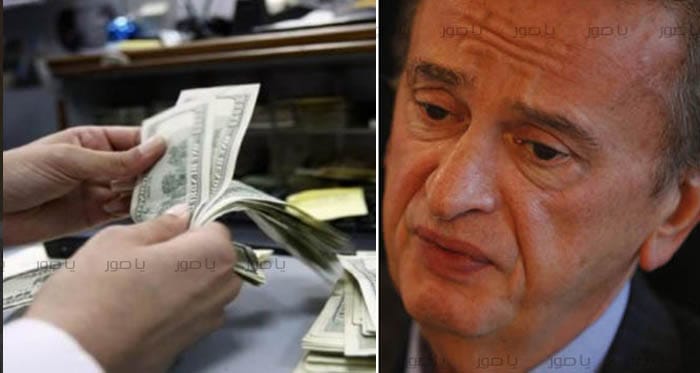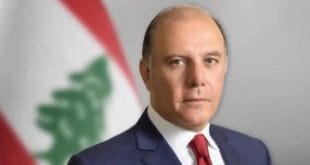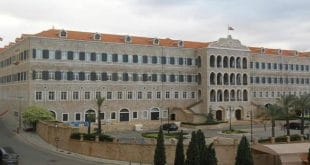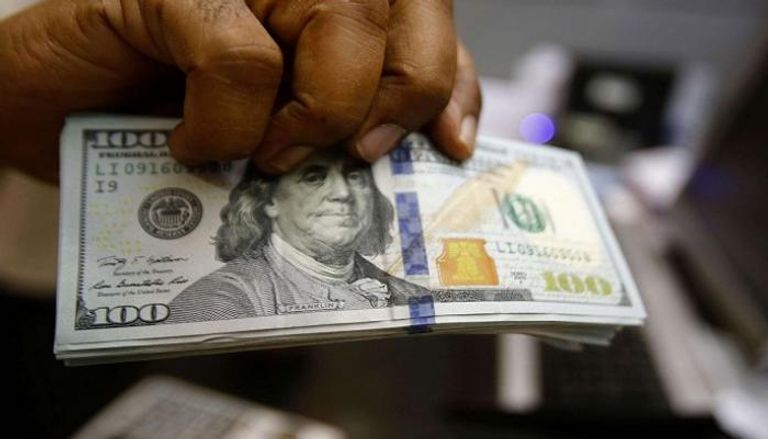لم يخالف قاضي التحقيق الأول في بيروت بلال حلاوي التوقعات حول حاكم مصرف لبنان السابق رياض سلامة، إذ أنهى جلسة استجوابه، الاثنين، بإصدار مذكرة توقيف وجاهية بحقّه، بناء على الجرائم المسندة إليه في متن ادعاء النيابة العامة المالية ضدّه، وهي «سرقة أموال عامة وتبييض الأموال والإثراء غير المشروع». كما حدد جلسة ثانية يوم الخميس لاستكمال التحقيق معه.
جلسة سلامة التي استغرقت ساعتين ونصف الساعة، عقدت بحضور وكيل الدفاع عنه المحامي مارك حبقة، ووسط تدابير أمنية مشددة لم يعهدها قصر العدل من قبل، إلا في حالات استثنائية، حتى خلال التحقيقات التي أجرتها الوفود الأوروبية مع سلامة العام الماضي.
وأثارت هذه الإجراءات عشرات المحامين وروّاد قصر العدل الذين منعوا من دخول دائرة النيابة العامة في بيروت لمتابعة ملفاتهم، حتى أن الإجراءات شملت عناصر أمن منعوا من إدخال البريد إلى النيابة العامة، ما تسبب بإشكالات وصراخ ما بين المراجعين والقوى المكلفة تأمين الاستجواب.
وأفادت مصادر واكبت جلسة التحقيق، بأن الاستجواب «تمحور حول حساب الاستشارات العائد لشركات الوساطة والعمولة التي استحصلت عليها من البنك المركزي خلال الاكتتاب في سندات الخزينة وحققت بموجبها أرباحاً طائلة». وأكدت المصادر لـ«الشرق الأوسط» أن قاضي التحقيق «أعطى سلامة الوقت الكافي لشرح آلية عمل حساب الاستشارات، وأن المدعى عليه أبلغ قاضي التحقيق أن مبلغ الـ42 مليون دولار المزعوم سرقته ليس من أموال مصرف لبنان ولا من أموال المودعين، بل مجرّد عمولة حصل عليها من المصارف التجارية ومن أفراد»، مشيرة إلى أن حلاوي «سيستدعي موظفين في البنك المركزي للتثبّت مما ورد في إفادة سلامة، وقد يجري مقابلات فيما بينهم».
متظاهرون يقتربون من السيارة الأمنية التي أقلت سلامة إلى قصر العدل في بيروت الاثنين (أ.ب)
وقالت إن سلامة «بدا متماسكاً خلال الجلسة، بخلاف ما يحكى عن أنه متعب نفسياً ومعنوياً، وأنه قدّم أجوبة واضحة ومستندات تدعم أقواله، وسمح له بالجلوس خلال طرح الأسئلة عليه، وبناء على ذلك تقرر استدعاء موظفين للاستماع إليهم».
ولا تستبعد المصادر أن «يستعين قاضي التحقيق بخبراء للتدقيق المالي لشرح بعض البنود الواردة في إفادة الحاكم السابق، وقد يطلب من هيئة التحقيق الخاصة في مصرف لبنان مزيداً من المستندات المتعلقة بهذه الدعوى».
وقبل بدء الجلسة بساعة، حضر عشرات من عناصر الأمن إلى مبنى النيابة العامة ودائرة التحقيق في بيروت، وطلبوا إخلاءه من المحامين والإعلاميين والمدنيين الذين حضروا لمراجعة ملفاتهم.
وقبيل بدء الاستجواب حضرت رئيسة هيئة القضايا في وزارة العدل، القاضية هيلانة إسكندر، لمتابعة الجلسة، كونها اتخذت صفة الادعاء باسم الدولة اللبنانية، إلّا أن القاضي حلاوي لم يأذن لها بحضور جلسة الاستجواب.
وتضاربت المعلومات حول دوافع إخراج رئيسة هيئة القضايا من الجلسة، إذ عزت مصادر في قصر العدل الأسباب إلى دعوى المخاصمة التي سبق لسلامة أن رفعها ضدّ إسكندر في ملفّ سابق، إلّا أن مصادر مقربة من الأخيرة أشارت إلى أن حلاوي «رفض مثولها قبل الاستحصال على كتاب من وزير المال يوسف خليل، يفوضها تمثيل الدولة في هذا الملفّ». وقالت لـ«الشرق الأوسط» إن إسكندر «أبرزت الكتاب الذي تسلمته من وزير المال سابقاً».
وتضمن كتاب وزير المال المرسل إلى هيئة القضايا ما يلي: «نفيدكم بأن وزارة المالية أخذت علماً بخصوص انضمام الدولة اللبنانية إلى الدعوى العامة المقامة بحق حاكم مصرف لبنان رياض سلامة وشقيقه رجا سلامة وماريان الحويك (مساعدة رياض سلامة)، وكل من يظهره التحقيق، ويتوجب على هيئة القضايا القيام بما تراه مناسباً بهذا الخصوص».
ورغم الاتصالات التي أجرتها رئيسة هيئة القضايا بوزير العدل هنري الخوري ووزير المال يوسف خليل، لم تتمكن من حضور الجلسة.
وقبل ساعات من سوق سلامة إلى قصر العدل، نظّم عشرات المودعين في المصارف اللبنانية والذين خسروا أموالهم جرّاء الأزمة، اعتصاماً أمام مدخل قصر العدل في بيروت، ورفعوا لافتات ورددوا هتافات تتهم الحاكم السابق بسرقة أموالهم، كما أقدموا على اعتراض الموكب خلال دخوله قصر العدل، وعلت الصيحات المطالبة بالاقتصاص منه.
المصدر: يوسف دياب – الشرق الأوسط
**Riad Salameh Justifies Source of $42 Million During Prolonged Interrogation**
In line with expectations, Beirut's First Investigative Judge, Bilal Halawi, concluded the interrogation of former Central Bank Governor Riad Salameh on Monday by issuing an arrest warrant. Salameh faces charges brought by the Financial Prosecutor’s Office, including embezzlement of public funds, money laundering, and illicit enrichment. The investigation will continue in a second session scheduled for Thursday.
The interrogation, which lasted two and a half hours, took place in the presence of Salameh’s defense attorney, Mark Habka, amid tight security measures. Such security at Beirut’s Palace of Justice has only been seen in exceptional circumstances, even during previous investigations conducted by European delegations into Salameh last year.
These strict security measures caused disruption among lawyers and visitors to the courthouse, who were barred from entering the Public Prosecutor's Office to follow up on their cases. Even court staff were prevented from delivering mail to the office, leading to altercations between visitors and the security forces in charge of the interrogation.
Sources who followed the interrogation revealed that the questioning centered around the consultancy account related to brokerage companies and the commissions they earned from the Central Bank during the subscription of treasury bonds, which resulted in significant profits. According to these sources, Judge Halawi gave Salameh sufficient time to explain the consultancy account's operation. Salameh reportedly informed the judge that the $42 million in question was not stolen from the Central Bank or depositors' funds but was simply a commission he earned from commercial banks and individuals. Halawi is expected to summon Central Bank employees to verify Salameh’s claims and may conduct cross-examinations.
Protesters approached the security vehicle transporting Salameh to Beirut’s Palace of Justice on Monday (AP)
Salameh was said to have remained composed throughout the session, contrary to reports suggesting he was mentally and emotionally distressed. He provided clear answers and submitted documents to support his statements. Salameh was allowed to sit while answering questions, and as a result, employees will be summoned for further testimony.
The sources did not rule out that the judge may enlist financial experts to audit some of the details in Salameh’s testimony. The judge could also request additional documents from the Central Bank’s Special Investigation Commission related to the case.
An hour before the session began, dozens of security personnel arrived at the Public Prosecutor’s Office and the investigation wing in Beirut, ordering the evacuation of lawyers, journalists, and civilians who were present to handle their cases.
Prior to the interrogation, Helena Iskandar, head of the Cases Authority at the Ministry of Justice, arrived to follow the session, as she had taken the legal action on behalf of the Lebanese state. However, Judge Halawi did not permit her to attend the interrogation.
Conflicting reports emerged regarding the reasons for her exclusion. Judicial sources attributed it to a lawsuit previously filed by Salameh against Iskandar in a separate case. However, sources close to Iskandar claimed that Halawi refused her appearance because she did not have a written authorization from Finance Minister Youssef Khalil, authorizing her to represent the state in this matter. Iskandar reportedly presented the authorization she had previously received from the Finance Minister.
The letter from the Minister of Finance to the Cases Authority stated: “We inform you that the Ministry of Finance has acknowledged the state's participation in the public lawsuit against the Governor of the Central Bank, Riad Salameh, his brother Raja Salameh, and Marianne Hoayek (Salameh's assistant), and all those implicated in the investigation. The Cases Authority is responsible for taking the appropriate actions in this matter.”
Despite Iskandar's attempts to contact both Justice Minister Henry Khoury and Finance Minister Youssef Khalil, she was unable to attend the session.
Meanwhile, hours before Salameh was brought to the courthouse, dozens of Lebanese bank depositors, who lost their savings in the financial crisis, organized a protest outside the entrance of Beirut’s Palace of Justice. They raised banners and chanted slogans accusing the former governor of stealing their money. Protesters also blocked Salameh’s motorcade as it entered the courthouse, demanding justice and accountability.
translated by economyscopes team
 سكوبات عالمية إقتصادية – EconomyScopes إجعل موقعنا خيارك ومصدرك الأنسب للأخبار الإقتصادية المحلية والعربية والعالمية على أنواعها بالإضافة الى نشر مجموعة لا بأس بها من فرص العمل في لبنان والشرق الأوسط والعالم
سكوبات عالمية إقتصادية – EconomyScopes إجعل موقعنا خيارك ومصدرك الأنسب للأخبار الإقتصادية المحلية والعربية والعالمية على أنواعها بالإضافة الى نشر مجموعة لا بأس بها من فرص العمل في لبنان والشرق الأوسط والعالم




